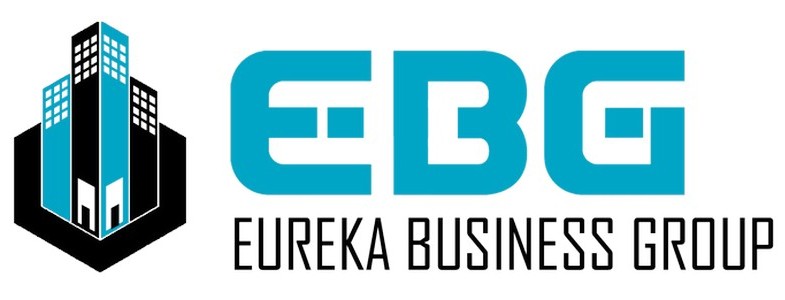- Home
- Commercial Broker Services
- Business Broker Services
- Business Owners Resources
- Finding Your Business Home: The Role of a Commercial Broker in Retail Leasing
Finding Your Business Home: The Role of a Commercial Broker in Retail Leasing
In the fast-paced world of retail, finding the perfect location for your business is a crucial step toward success. The right retail space can enhance visibility, attract foot traffic, and create a welcoming environment for customers. However, the process of securing this ideal location can be daunting and complex. This is where a commercial broker becomes an invaluable ally, guiding you through the maze of retail leasing to find your business home.
Understanding the Retail Leasing Landscape
Retail leasing is a specialized area of commercial real estate that involves renting out spaces designed for retail purposes. Unlike residential leasing, retail leases often come with unique terms and considerations such as tenant improvements, co-tenancy clauses, and percentage rent. These factors can significantly impact the financial and operational aspects of your business.
The Expertise of a Commercial Broker
A commercial broker, particularly one specializing in retail leasing, brings a wealth of knowledge and experience to the table. Here’s how they can assist you in finding the perfect retail space:
Market Knowledge and Insights Commercial brokers have their fingers on the pulse of the market. They understand the dynamics of various retail locations, including foot traffic patterns, demographic trends, and competitive landscapes. This knowledge allows them to recommend locations that align with your business goals and target audience.
Access to Listings and Off-Market Opportunities While some retail spaces are publicly listed, many prime locations are not. Brokers often have access to off-market opportunities through their networks. This access can give you a competitive edge in securing a sought-after location before it becomes widely available.
Negotiation Skills Negotiating a retail lease involves more than just agreeing on rent. Brokers can negotiate favorable lease terms, such as tenant improvement allowances, lease length, and renewal options. Their expertise ensures you get the best possible deal, protecting your interests while fostering a positive landlord-tenant relationship.
Understanding Legal and Financial Implications Retail leases can be laden with legal jargon and financial implications that may not be immediately apparent. A commercial broker can help you navigate these complexities, ensuring you understand the terms and conditions. They can also collaborate with legal and financial advisors to safeguard your business interests.
Time and Stress Management The process of finding and securing a retail space can be time-consuming and stressful. A commercial broker handles much of the legwork, from identifying potential spaces to coordinating site visits and handling negotiations. This allows you to focus on running your business.
Steps in the Retail Leasing Process
Working with a commercial broker involves a series of steps designed to streamline the retail leasing process:
Initial Consultation The process begins with an initial consultation where the broker learns about your business, goals, and space requirements. This includes understanding your budget, preferred locations, and any specific needs such as square footage, layout, and accessibility.
Market Research and Site Selection Based on your criteria, the broker conducts market research to identify potential locations. They present you with a shortlist of properties, highlighting the pros and cons of each. This phase may involve multiple site visits to evaluate the spaces firsthand.
Comparative Analysis The broker performs a comparative analysis of the shortlisted properties, considering factors such as rent, location, amenities, and lease terms. This analysis helps you make an informed decision based on objective data.
Lease Negotiation Once you’ve selected a preferred location, the broker initiates lease negotiations with the landlord. Their goal is to secure terms that are favorable to you, whether it’s a lower rent, better lease duration, or specific tenant improvements.
Finalizing the Lease After successful negotiations, the broker assists in finalizing the lease agreement. They review the document to ensure all negotiated terms are accurately reflected and advise you on any final considerations before signing.
Move-In and Beyond The broker’s role doesn’t necessarily end with the signing of the lease. They can assist with the move-in process, coordinating with contractors for any necessary build-outs or improvements. Additionally, they may provide ongoing support, helping to address any issues that arise during the lease term.
The Long-Term Benefits of Using a Commercial Broker
The relationship with a commercial broker can extend beyond the initial lease agreement. Here are some long-term benefits:
Continued Market Insights Even after securing your retail space, a broker can keep you informed about market trends and opportunities. This ongoing insight is valuable for planning future expansions or relocations.
Lease Renewal and Renegotiation As your lease term nears its end, a broker can assist with lease renewal negotiations. They can leverage market data to ensure your renewal terms are competitive and aligned with current market conditions.
Problem Resolution Should any issues arise with your lease or landlord, a broker can act as an intermediary to resolve disputes. Their experience and knowledge of the lease terms can help facilitate amicable solutions.
Choosing the Right Commercial Broker
Selecting the right commercial broker is critical to your success in the retail leasing market. Here are some tips for choosing the right partner:
Experience and Specialization Look for a broker with specific experience in retail leasing. Their specialization ensures they understand the nuances of the market and can provide tailored advice.
Reputation and References Research potential brokers’ reputations and seek references from past clients. A broker with a solid track record of successful retail leases is more likely to deliver favorable results.
Communication and Compatibility Choose a broker who communicates effectively and understands your business vision. A good broker should be a collaborative partner, willing to listen and adapt to your needs.
Network and Resources A well-connected broker with a robust network can offer access to exclusive listings and valuable industry contacts. Their resources can expedite the leasing process and enhance your overall experience.
Conclusion
Finding the right retail space is a pivotal decision that can significantly impact your business’s success. A commercial broker plays an essential role in navigating the complexities of retail leasing, offering expertise, market insights, and negotiation skills to secure the best possible location for your business. By partnering with a knowledgeable broker, you can find your business home—a space that not only meets your needs but also positions your retail venture for long-term success.



